Loud and proud: USA Outlaws unite to outshine the rest
Pete Hall attends a pre-match bash with the raucous supporters of Team USA ahead of their last 16 battle with the Belgians...
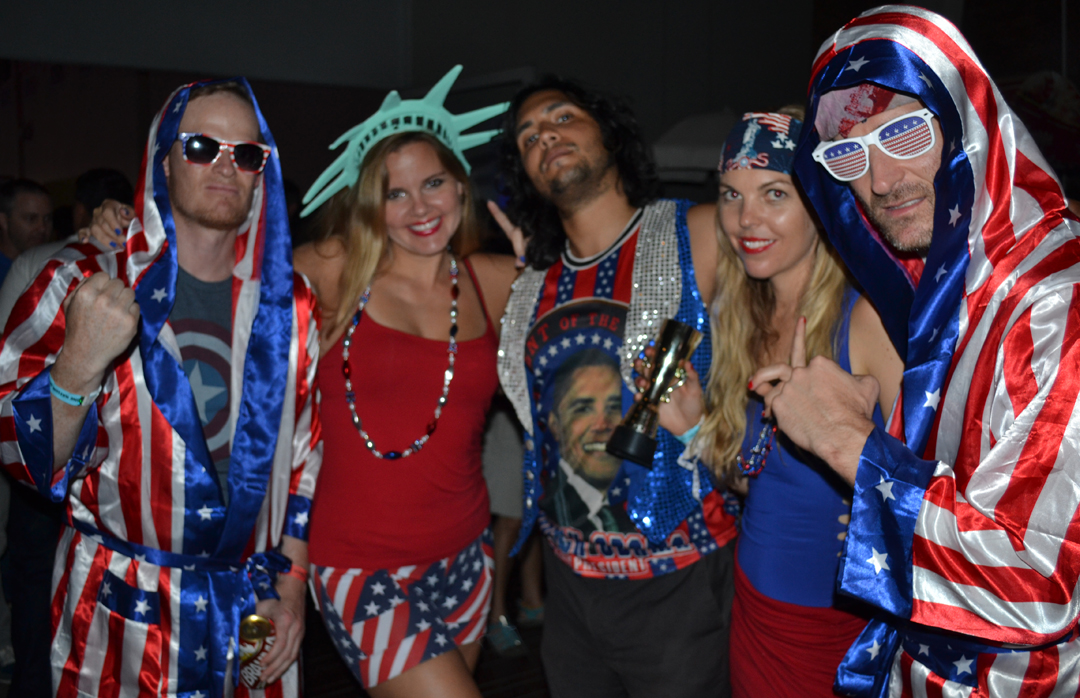
England fans are famed across the world for their devotion following the Three Lions wherever they go, despite more often than not being disappointed wherever their heroes take them.
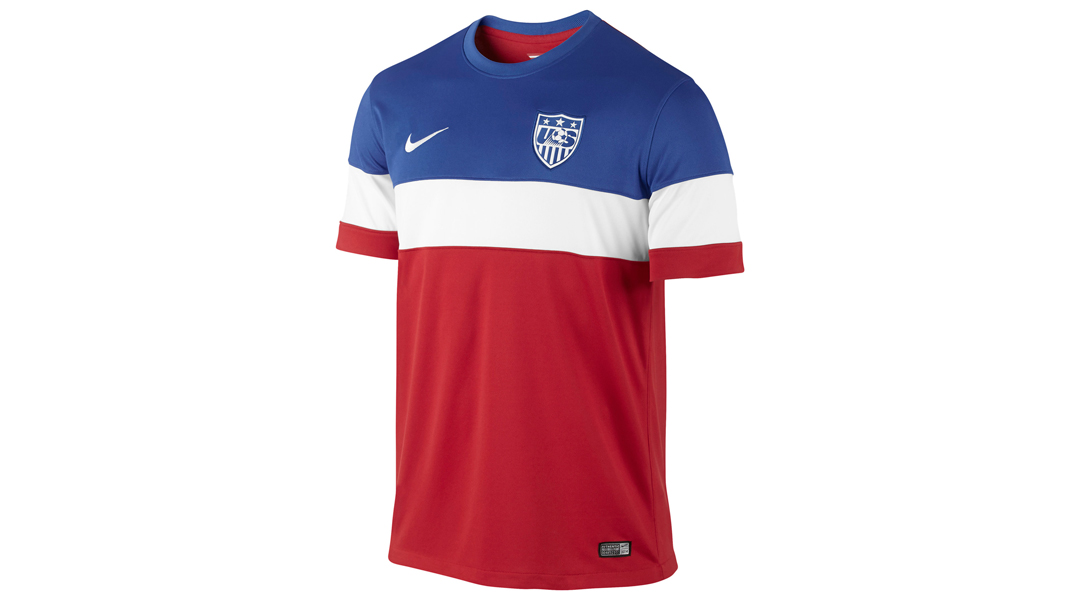
Argentines are here in Brazil en masse, Colombians have taken advantage of their close proximity to follow Los Cafeteros across the country, while the unmistakably orange Netherlands support has drunk many a bar dry.
Yet for all of the loyalty shown by many sets of fans, who brought the most out to Brazil with the help of one of the most organised fan associations in the world?
The American Outlaws, the US soccer team’s unofficial fan group, helped plan and prepare more than 500 USA fanatics’ trips to Brazil, adding numbers to the largest and arguably most vociferous following in Brazil.
FFT went along to the pre-party before their World Cup last 16 clash with Belgium to see where the enthusiasm comes from, and why so many made the arduous journey around the fifth-largest country on the planet – for football. These bashes before and after each match are hugely popular, so much so they are guestlist only.
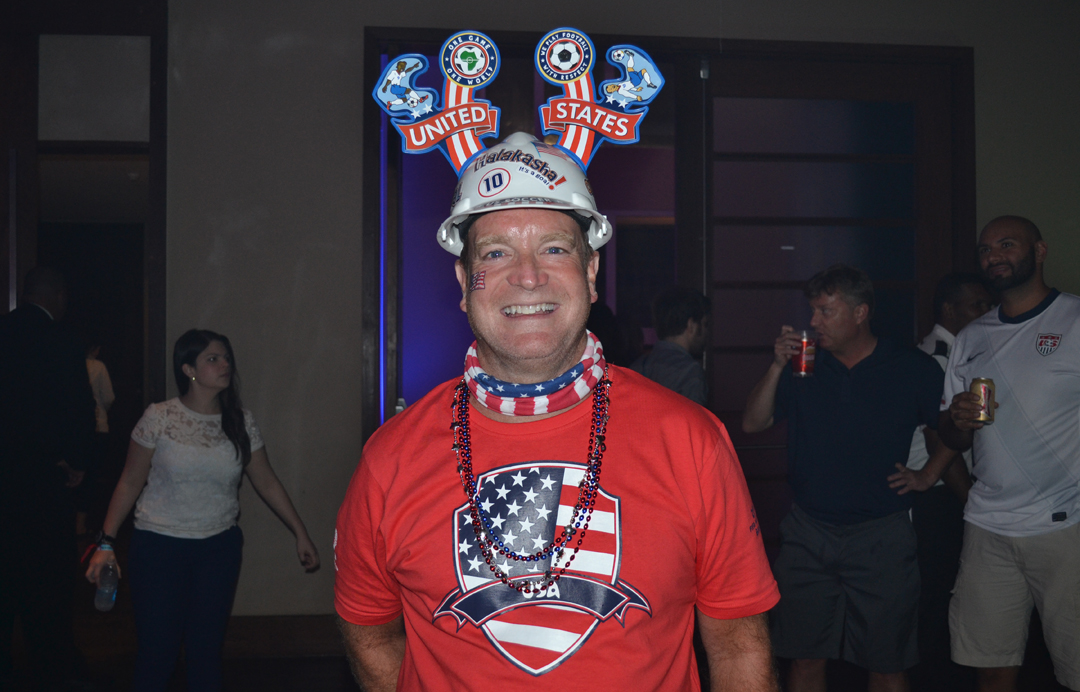
Will Ferrell was the celebrity guest at a previous event, donning the Stars and Stripes of a nation who still enjoy their traditional national pastimes more. FFT’s appearance wasn't met with quite the same enthusiasm.
A rallying speech from one of the organisers, in front of a huge banner proclaiming ‘One Nation, One Team’ certainly roused the fervent fans in attendance, before the fun and games commenced.
Get FourFourTwo Newsletter
The best features, fun and footballing quizzes, straight to your inbox every week.
“We have a large country, but I’ve made friends from Alaska to Tampa with the Outlaws,” veteran Team USA follower Ed Smith tells FFT,in between some rather aggressive back-slapping.
Established by three uber-enthusastic soccer fans in the footballing backwaters of Lincoln, Nebraska, the American Outlaws, with their imposing skull-and-crossbone style emblem, now boast more than 25,000 members – 500+ of whom followed their team to Brazil on specially chartered flights.
“We wanted to create an organisation to 'unite and strengthen' support for American soccer,” says Dan Wiersema, one of the organisers. “Our support is inspired for soccer all over the world. One of the great strengths of the Outlaws is the strength of the country we support.
“Everyone who is in the national leadership of the Outlaws has a full-time job, in addition to what amounts to a second full-time job to run this.”
The organisation is incredible. Everything runs like clockwork – and that’s just the party.
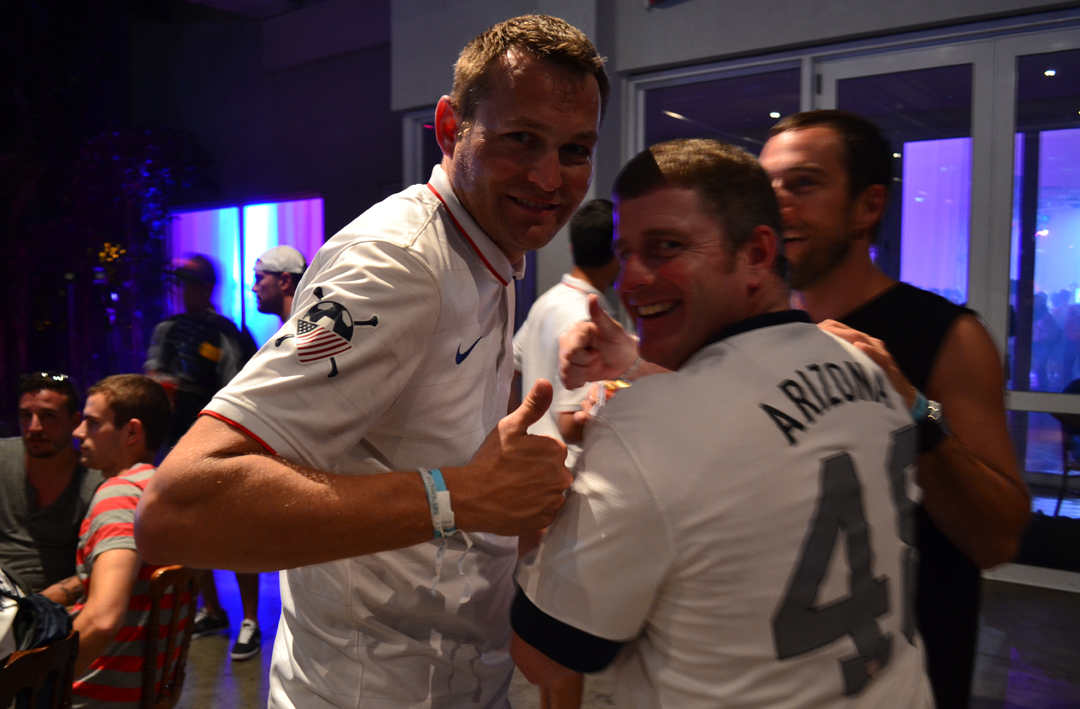
The United States Soccer Federation puts on these events for the fans knowing that, through the power of the Outlaws’ wide-reaching social network, word will spread fast.
With more than 143 chapters (supporters clubs) nationwide, football is slowly but surely emerging from the shadows of its more illustrious sporting rivals. They won’t be outlaws much longer.
“We were part of an outlier group of sports fans,” Wiersema continues. “In a sea of American Football, baseball, and NASCAR fans we felt we were 'outlaws' of the sports world; supporting a sport that most people didn’t know much or cared little about.”
The ignorant perception of US football fans is slowly changing. They don’t have the footballing history to generate their chants from – they have had to do it all from scratch.
English football has played a major part in the increased levels of enthusiasm. Premier League games are televised every weekend, and despite the unsociable hours back in the States, viewing numbers are growing all the time.
Our conversation with the more prominent members of the group was interrupted by the Outlaws’ signature chant, one which will have been heard through TV sets around the world as the US team toiled in the heat of the Arena Fonte Nova on Tuesday.
“We believe that we will win,” may not be the most imaginative of football mantras, but with fans singing at the top of their voices to the beat of several large kettle drums, it certainly made the hairs stand.
The drums, colourful attire and patriotic feelings all marched on Salvador's picturesque stadium ahead of the Belgium clash, without an utterance of any violent intent. There’s a strict Outlaw Code of Conduct to adhere to.
“We spoke to the local authorities who agreed to close two streets. We want to keep things amicable,” Dale Hodec, another long-term Outlaw, told us.
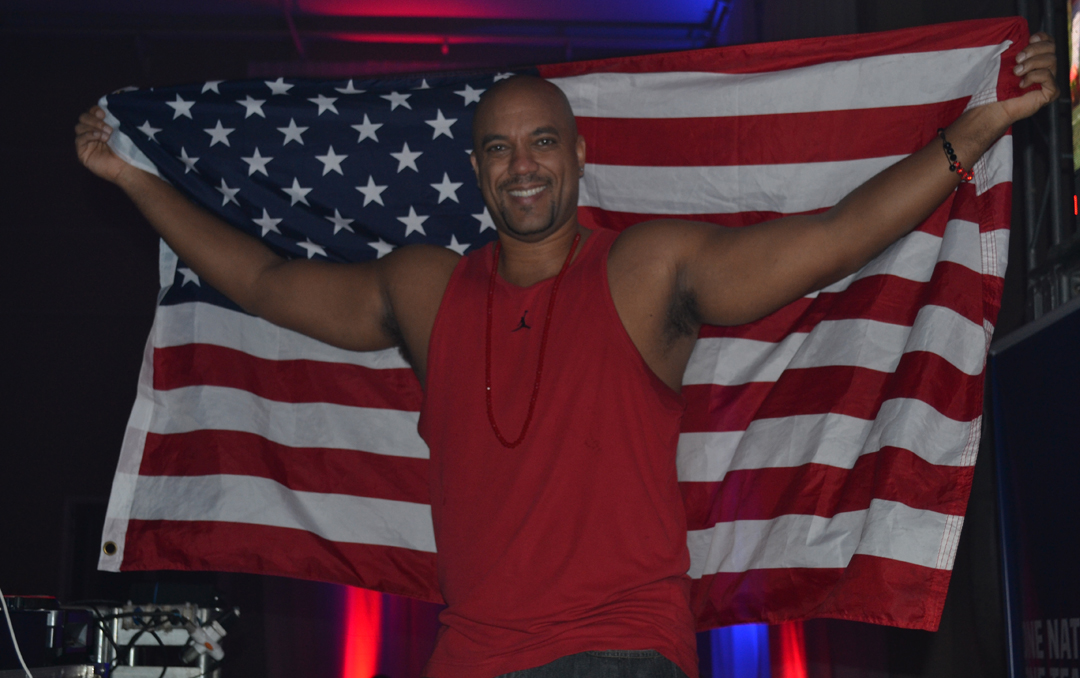
It's not just in Brazil that football fever has gripped Americans. Soldier Field in Chicago, the oldest NFL stadium in the country and proud of its American Football heritage, opened its doors for the game to 20,000 of the city’s most animated soccer fans at 3pm on a Tuesday afternoon.
Barack Obama, Arnold Schwarzenegger and Tom Hanks all tweeted messages of support, entranced by football’s showpiece, enthused by their team and their fans' showing.
It might now be the end for Team USA and their spirited fanbase, but it has certainly been a hell of an adventure. Even the floods in Recife, where Jurgen Klinsmann’s men played Germany, failed to put a dampener on the Outlaws’ shindig.
“The next level is that we need to all sit together, like you guys do when you travel,” Hodec admits. “It is very much country over club here. We just want a chance to prove that.”
With more big names heading to MLS, new franchises popping up all the time, and some bright young stars who are more than capable of competing on the biggest stages, football back in the States is certainly on the up, and the future is bright.
Now no longer in the shadows of other sports fans, the American Outlaws have announced themselves to the football world. With organisation like this, more established nations could learn a thing or two from these rogues.
